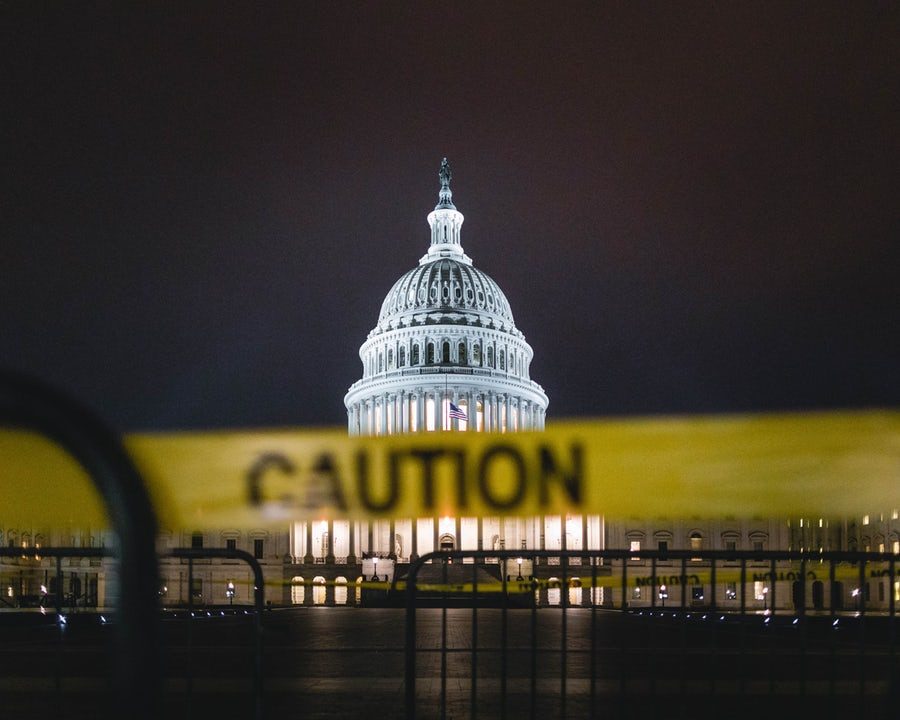Troylon’s Talks: Black History Month
March 1, 2016
 Many people have often come to me or other blacks during February and asked, ‘Why don’t we have a White History Month?” I’ll admit I once questioned this as well but it was very briefly because I learned early on the purpose of Black History Month.
Many people have often come to me or other blacks during February and asked, ‘Why don’t we have a White History Month?” I’ll admit I once questioned this as well but it was very briefly because I learned early on the purpose of Black History Month.
Black History Month was the creation of Carter G. Woodson, when he and the Association for the Study of Negro Life and History announced that the second week of February was “Negro History Week.” This week was chosen because it coincided with Abraham Lincoln and Frederick Douglass’ birthdays, which are February 12th and 14th. Blacks had already celebrated the dates during the nineteenth century so it was not hard for many to start recognizing Negro History Week. The week of celebration finally became a month of celebration in 1970 when leaders of a black organization at Kent State University proposed its expansion in 1969. The U.S. government finally recognized Black History Month officially in 1976.
So why? Why did historian Carter G. Woodson choose to create a month that recognizes the history of African Americans and their descendants? Well, during the era of Jim Crow and throughout the Civil Rights era, African Americans were the victims of much racism and discrimination. To coincide with this, the public did not regard the history and contribution of blacks throughout the years. As Malcolm X noted in his autobiography, his high school textbook had little more than just a paragraph about slavery and the slaves’ liberation. Even when the history of blacks in America was acknowledged, it was presented in a biased and quite frankly disrespectful manner. It’s not like Hollywood or the media helped much either. Whether it be blackface or downright scrutiny, early depictions of blacks in movies and entertainment were not very respectful and are the main reason for most bad stereotypes today. Carter G. Woodson’s vision and intent in the creation of Negro History Week was to regard and acknowledge the history and contributions of African Americans throughout history. If you’re someone living in the Jim Crow and Civil Rights era, when your history is already being ignored and the media is horribly representing you, you’ve got to take advantage of whatever opportunity you get to have pride in your culture. This is one reason that arguing for a white history month is practically overkill. Hollywood and the media have always portrayed white Americans in a positive light and manner and have given young white children many idols and positive role models to look up to, while the same cannot be said for African Americans. In fact, Carter G. Woodson believed that if whites knew the true history of blacks in America and Africa, the negative stereotypes and images of blacks would cease. In 1976, upon the government officially recognizing Black History Month, President Gerald Ford called to the public to “seize the opportunity to honor the too-often neglected accomplishments of black Americans in every area of endeavor throughout our history.” As Diversity Plus magazine says, the purpose of the month is for remembrance of important people and events in the history of the African Diaspora.
Today, that is still the purpose and has been ever since the week was created and since the week was extended to a month. Carter G. Woodson dreamed that African Americans would be acknowledged for their contributions to science, civil rights, law, literature, and to the overall betterment of society.
Nevertheless, Black History Month is something that has begun to be misinterpreted and taken out of context by so many, including those who acknowledge it. Many have reduced it to a month in which we only speak of famous black historical figures like Martin Luther King Jr. and Rosa Parks, and overall do not take complete advantage of the month. We should also speak of are those who aren’t acknowledged as much as Benjamin Banneker, who is one of the reasons Washington D.C. is designed the way it is today, or Charles Drew who is the reason we have blood banks. The list goes on and on. Carter G. Woodson wanted us to know of those who helped form America’s backbone, and show why African American’s rights needed to be fought for by figures like MLK and Rosa Parks.
Overall, black history month is a time to remind us of the idea of perseverance and a time to remember history that we may not always get to learn in history class. History is obviously a vast and extensive subject that two semesters of class couldn’t possibly cover. We should always take whatever chance we can to learn of history that we do not always learn of in school, and to learn history in general. It is history that reminds us of who we are, where we came from and how to learn from past mistakes.
In recent years, another issue that I find being brought up to me is whether we still need a Black History Month. Well, whenever I think of this question, it makes me think of something my history teacher told me when I asked her of her thoughts on Black History Month was. She told me that she wants American History that acknowledges history from all perspectives of all races. I couldn’t agree more, and the same goes for Carter G. Woodson. Woodson envisioned that someday a week or month would no longer be needed to honor black Americans because their history would no longer be scrutinized or ridiculed in history books. As I’ve stated before, Black History Month originated as way to acknowledge the disregarded history of blacks in America. Black history is American history and that history alone is too expansive to put into one month and as I continue to complete my course of AP US History and see the contributions of blacks being acknowledged in my textbook, I think it’s safe to say that the day will come in which we will not need a month to acknowledge any race’s history, for we will have textbooks and a history that fully remembers and regards the history of all cultures of America and the world.
















